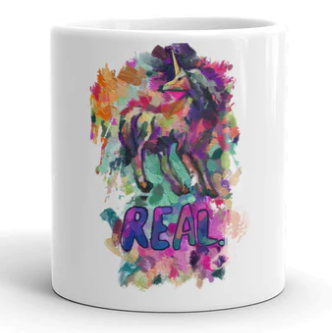6 Surprising Facts About Unicorn Symbolism in Ancient Greece
Did you know that the ancient Greeks were fond of unicorns?
We've got to admit that it's pretty cool that people living in the bastion of democracy more than two millennia ago were aware of our favorite magical, mythical creature!
Here are six facts about the unicorn and its symbolism in ancient Greece that might just surprise you!
Many Greeks believed the unicorn's horn could heal medical problems.
This belief was popularized by Ctesias, who was a Greek physician who worked in the court of King Artaxerxes II of Persia.
However, those medicinal benefits might only last for one day.
According to Philostratus, a teacher from the 2nd and 3rd centuries CE, if a person were to drink from a cup made of unicorn horn, no illness, poison, or pain could harm them for at least a day. Even more astounding was Philostratus' belief that one could even walk through a fire without any consequences so long as you drank from your favorite unicorn cup.
And here's a good place to mention that we have our own unicorn cups!
Unfortunately, ours don't cure illnesses, poison, or pain, much less help you walk through a fire. But they look awesome, though, so there's that, right? :)
Aristotle believed that unicorns exist.
The famed philosopher was a true believer in unicorns, but his thoughts on them did differ from mainstream opinion on unicorns in the ancient Greek cultural context. Aristotle did not think there was any evidence to state that the unicorn's horn had medicinal properties.
Unicorn sightings may have been regular occurrences in ancient Greece.
The poet Oppian claimed that not only had unicorns been seen in the Greek world, but that they were native to the province of Aonia.
Unicorns were also seen in India, too.
Apollonius of Tyana was another philosopher from ancient Greece (did they grow them on trees?). He claimed that he had encountered numerous unicorns while visiting India.
Of course, some things can get lost in translation.
Megasthenes was a historian who studied under Buddhist monks from Asia. Because of language difficulties, he understood the unicorn to be a hybrid of a horse and a rhino.
If you'd like to learn more about the unicorn and its symbolism in ancient Greece, as well as how a whole host of other cultures integrated unicorns into their symbolism and folklore, consider purchasing a copy of The Book of the Magical Mythical Unicorn.

